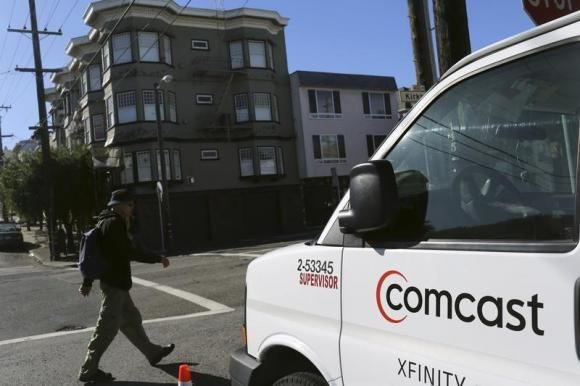Comcast Data Cap: Controversial Usage-Based Billing Plan Reportedly Comes To Light At MoffettNathanson Summit
Broadband users who go over the threshold would face additional fees

If Comcast Corporation (NASDAQ:CMCSA) gets its way, data caps could be coming to one-third of all U.S. broadband Internet users by 2019.
The issue came to light on Wednesday, when David Cohen, Comcast’s executive vice president, spoke at the MoffettNathanson Media & Communications Summit in New York, telling attendees he expects the company to roll out “usage-based billing” to all its customers within five years. That would mean broadband customers who go over a certain threshold would face an additional charge.
Comcast has disputed the term “data cap,” instead preferring the term “data threshold,” but the difference is semantic, at best. Last month, the company’s vice president of government communications, Sena Fitzmaurice, told International Business Times that Comcast is testing data thresholds in certain markets, where heavy broadband users can buy additional data for $10 per 50 gigabytes if they go over the 300 gigabyte usage allotment. “But that only affects a very small percentage of our customers in a few markets,” Fitzmaurice said.
If Cohen’s comments are any indication, those test markets are only the beginning. Cohen has been Comcast’s top lobbyist in its bid to seek regulatory approval for its acquisition of Time Warner Cable Inc. (NYSE:TWC). If the merger is approved, Comcast would control one-third of the broadband Internet market. Cohen’s comment on “usage-based billing” apparently came in response to a question from Craig Moffett, founder of research firm MoffettNathanson LLC in New York.
Curiously, the comments don’t appear in an edited version of the event’s transcript. However, several websites, including Ars Technica and Multichannel News, reported them. “I would predict that in five years, Comcast at least would have a usage-based billing model rolled out across its footprint,” Cohen reportedly said.
According to reports, Cohen said the thresholds would be higher than they are today, perhaps as high as 500 gigabytes, meaning only a small number of heavy Internet users would likely be affected. Such plans are still controversial and have been criticized by groups like the Writers Guild of America, which has been a fierce opponent of the Comcast-TWC merger. Many providers -- including Time Warner Cable -- impose no usage-based thresholds.
An edited version of Comcast’s MoffettNathanson conference can be found here.
Got a news tip? Email me. Follow me on Twitter @christopherzara.
© Copyright IBTimes 2025. All rights reserved.






















